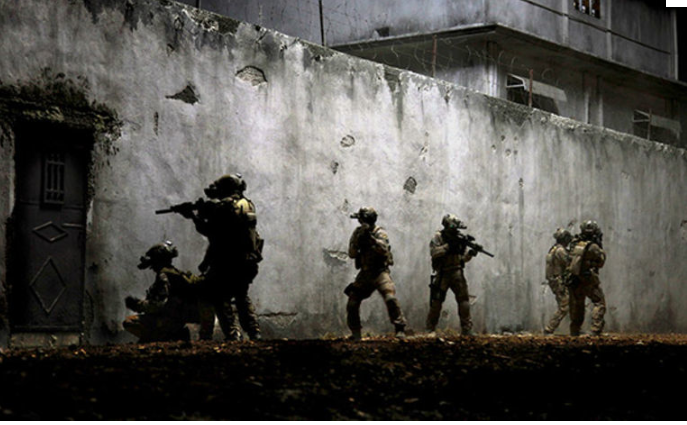Despite debates over its depiction of torture, Zero Dark Thirty became the most-watched movie in America this week, and looks to be heading for another strong weekend. How reliable the film’s portrait? Does it give an accurate picture of how the CIA anti-terrorism efforts really work? Nada Bakos, who spearheaded the CIA’s Zarqawi Operations team from 2004-2006 as a targeting officer, weighs in. Prior to the operations position, Bakos served as an analyst for the agency primarily in the Counterterrorism Center, and was a member of the team charged with defining the relationship between Iraq, al Qaeda, and 9/11.

Jessica Chastain portrays the CIA analyst Maya in the new movie “Zero Dark Thirty.” (PHOTO: SONY PICTURES)

Nada Bakos
When Pacific Standard called me to ask if I would write about Zero Dark Thirty, I still had not decided whether I wanted to see it. I was leaning toward no. People who work in intelligence don’t generally see movies about it. You can enjoy them only once you’ve been out of the game for a while, and then only if you don’t take it too seriously. I watch Homeland. It’s fun, because it’s a fantasy.
Zero Dark Thirty occupied an odd space. It’s not ridiculous enough to allow complete suspension of disbelief. I get that Hollywood needs to sell tickets, but it’s not accurate enough to resonate with my experiences as a CIA analyst and later, a targeting officer in the clandestine service.
The movie’s ‘Maya’ appears to be an amalgamation of women I knew and worked with, some of whom go back further in the story than I do. Gina Bennett, Jennifer Matthews, and Barbara Sude were part of the initial group working in the Counterterrorism Center as targeters and analysts before 9/11. After the attacks, I and other officers transferred from other departments. Many were just joining the agency, like Maya at the movie’s beginning.
I could relate to Maya as a mid-level officer, being asked to “backbench” at a briefing—you’re briefing the guy who has to brief the guy—while she knows it’s her analysis that brought everyone together in the room. Supervisors sell this as “top cover” for the lower-level officer, and there is some truth to that. It’s easier for established officers to take a hit over a bad decision than for a new officer, whose career could end on an early miscall. When I became a supervisor, I did the same thing, and dodged my share of clipboards.
But for all the similarities between my career and fictional Maya’s, the movie’s version of how counter-terrorism works didn’t resonate with me. And not just the parts involving torture that has become such a major point of contention around the film. The whole story the film tells, both in terms of the time scale and the type of human effort it depicts, is likely to create some important misconceptions for the public about how our national security system really works.
I get that this is a Hollywood movie. Hollywood will gravitate to a film that is digestible and, ultimately, profitable. And depicting the reality of national security is challenging: much of the information is secret, and a lot of it is just not dramatic. Reading hundreds of reports and crafting papers is just not that exciting. People applaud the team that’s on the court when the buzzer goes off.
But I was surprised at what I saw. We’ve got the go-it-alone gunslinger, Maya, whose past is murky and future is vague. She’s Clint Eastwood’s “Man With No Name,” re-imagined as a twenty-something woman. She gathers up a posse, heads out, and kills the bad guy. Then she leaves. Because she’s not actually Clint Eastwood, she cries a little. You expect to see someone chasing the C-130 shouting, “Shane, come back!”
Already have an account? Sign In
Two ways to continue to read this article.
Subscribe
$1.99
every 4 weeks
- Unlimited access to all articles
- Support independent journalism
- Ad-free reading experience
Subscribe Now
Recurring Monthly. Cancel Anytime.
In reality, cowboys don’t work as targeters. (But they do ride with a large posse that helps with more than the gunfights. This 10-year hunt involved hundreds of people with several people at the core.) More often than not, effective intelligence—including the effort to find Osama bin Laden—is the result of sustained, collective efforts that spark moments of intuition among a pool of experts and processes, not individual hunches that compel monumental effort.
Saying otherwise misrepresents not only how the hunt for bin Laden worked, but how the whole system works.
Read Nada’s full review here.
About Nada Bakos–Former Central Intelligence Agency employee Nada Bakos spearheaded the CIA’s Zarqawi Operations team from 2004-2006 as a targeting officer. Prior to the operations position, Bakos served as an analyst for the agency primarily in the Counterterrorism Center, and was a member of the team charged with defining the relationship between Iraq, al Qaeda, and 9/11












COMMENTS